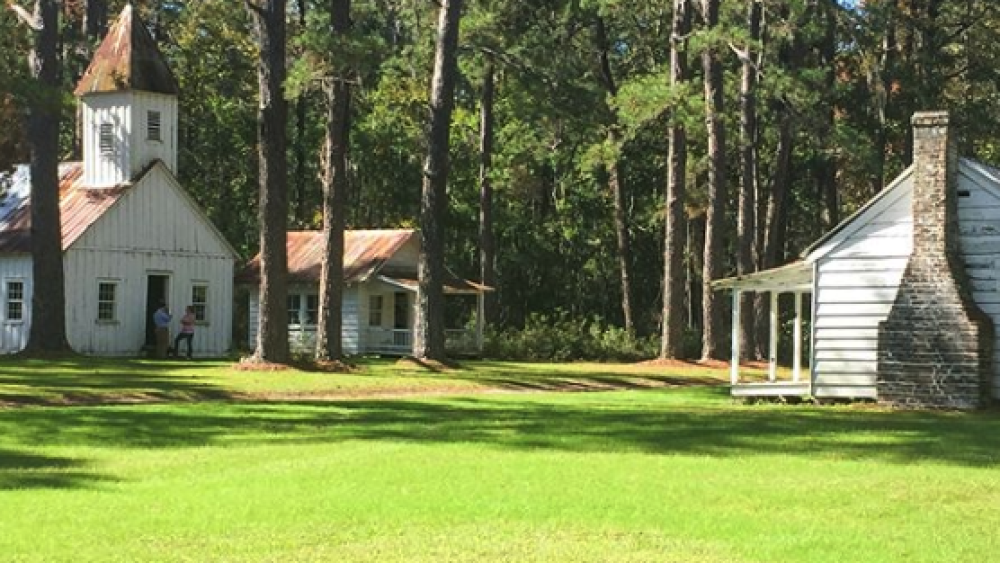Just north of Charleston, in Georgetown County, S.C. sits Hobcaw Barony– a massive, mostly undeveloped, + entirely protected reserve.
The land is situated along the Waccamaw Neck, between Winyah Bay and the Atlantic Ocean. Its history dates as far back as 1716, when it was used as a trading post between English settlers from Charles Towne + Native American tribes. The name ‘hobcaw’ actually comes from a Native American word meaning ‘between the waters.’
In 1718, King George I bestowed the land to John Lord Carteret (one of the ten Lords Proprietors). This is where the second half of the name comes from: ‘barony’ meaning a colonial land grant. Not long after, it was divided, subdivided + sold, making way for at least 11 plantations.

After being emancipated, many of the freedmen who were still living in old slave quarters on the property were hired by Bernard M. Baruch to maintain it. The homes remained occupied until as recently as 1952. | Photo by @faithfuladventurer
In 1905, the plots were reunited as one + acquired by Wall Street millionaire Bernard M. Baruch (at $3.15/acre for what would become 17,500 acres), who converted it into his summertime getaway. To maintain Hobcaw Barony, Baruch hired about 100 freedmen who were still living there in former slave dwellings. While living there, he entertained quite a few high profile guests– including Winston Churchill + Franklin D. Roosevelt. In fact, during WWII, Roosevelt spent four weeks at Hobcaw Barony– the longest vacation he took throughout his four terms as president.
Years later, Baruch agreed to sell 5,000 acres of the land to his eldest daughter, Belle. (Thanks a lot, Dad.) She ultimately acquired the entirety of Hobcaw Barony, + established it as a place where she could grow her passion for horses + horseback riding. A little backstory: she used her favorite horse, Souriant III, to compete in Europe, where women were allowed to face off against European cavalrymen (as opposed to in America– where as a woman, she was barred from competition entirely). The pair were so skilled that Adolf Hitler even attempted to buy the horse– but Baruch, who loved Souriant, and, not to mention, was the descendant of Jewish immigrants, responded to his offer with a firm “neigh.”
At the time of Baruch’s passing, her will dictated that Hobcaw Barony be turned into an outdoor research laboratory, under the management of the Belle W. Baruch Foundation. The property continues to be used for this purpose today– with its rich natural resources applied to forestry, marine biology, + estuary research conducted by both UofSC and Clemson.
Though the reserve is privately owned, visitors are welcome to stop by for a self-guided tour, or to attend one of the many events organized by the foundation + universities.











